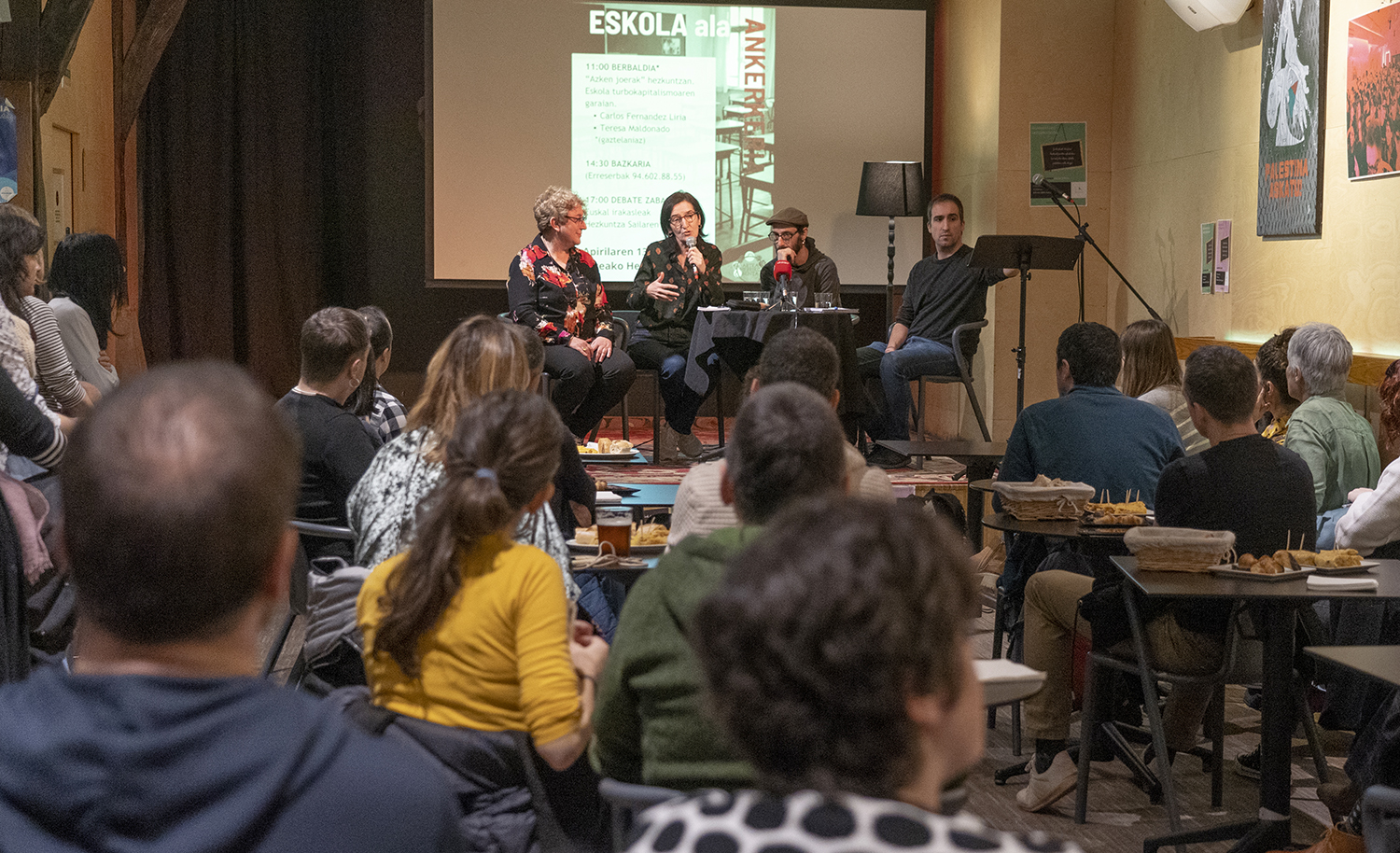
- The recent creation of the Educational Art Teachers’ Confluence has required teachers to take into account the knowledge accumulated over years, guarantee autonomy in decision-making by the clausters, stop the plans that promote the “use of ICTs at all times”, and carefully analyze their consequences before introducing methodological changes in the classrooms. The next steps are reported to the LIGHT.

The Confluence of Teachers of Art Education has been created by a group of teachers from the Basque Autonomous Community, whose manifesto was presented last weekend in Bilbao. They are concerned about the training of teachers, “especially what the management teams are receiving, indoctrinated in the neoliberal ideology of ‘pedagogical leadership’,” Tere Maldonado, a member of the group, tells LARA. In fact, one of the four main demands they make is to put limits on the managerial model of management and the autonomy of the cloisters to make decisions about the school. They have proclaimed “democratic cloisters.”
They also call for a reasoned use of ICTs: to get out of the multinationals’ dependency and to consider research that calls for limiting the use of screens “as much as possible”. “Both computer devices and unproven methodologies have led us to believe that they can replace the teacher,” they say.
"Both computer devices and unproven methodologies have led us to believe that they can replace the teacher"
Third request, trust in the teachers and appreciate their experience: “Guarantee the methodological freedom to carry out our work and reduce the sterile bureaucratic burden.” It is also stressed that the opinion of teachers should be heard in the channelling of economic resources.
Fourth request, to contrast innovation before extending it to the classrooms. “Several uncontrasted methodologies are being promoted,” they complain, and the “pedagogical fashion” of one, the “computing devices” of the other (in which public institutions have “squandered investments of thousands of euros”), denounce the worsening of the situation: reading comprehension, linguistic expression and the foundations of mathematics, among others.
It is said that “tiredness and disorientation” have spread among teachers, as witnessed by the fact that the manifesto has received the support of many teachers, in the words of Tere Maldonado. In his previous interview with LA LUZ, he explained that they want to denounce the drift of educational policies due to the constant new methodologies, the “terrible bureaucracy” and the “absurd use” of ICTs.
It is clear that these are changes driven by "private interests".
They will participate in the summer courses of the USA under the title 'Critical reflection on pedagogical innovation'
Looking ahead, what?
Maldonado has told us that they have a lot of work ahead of them: “Such as organizing the collection of attachments, perhaps asking the Minister of Education for a moratorium on both pedagogical and technological innovation, and meeting with other actors (student associations, parent associations, etc.).” In July, they will participate in summer courses at the UEU under the title Critical reflection on pedagogical innovation.
“In view of the fact that our proposal is having a lot of repercussions, we must sew and amplify our arguments well,” adds the professor, “because it can be foreseen that sooner or later the interests of pedagogy will appear on stage.”
Maldonado spoke plainly to us: "We want to launch the debate and report on the teachers' fatigue. We know that there are many teachers who think like us, tired of seeing how many obstacles they encounter in their daily work, who want to raise their voice. We encourage them to join us.”